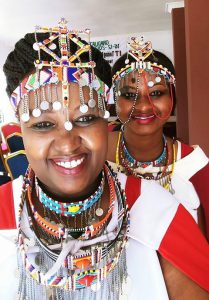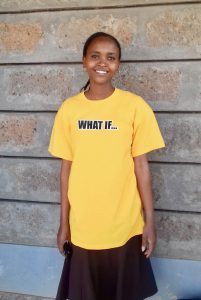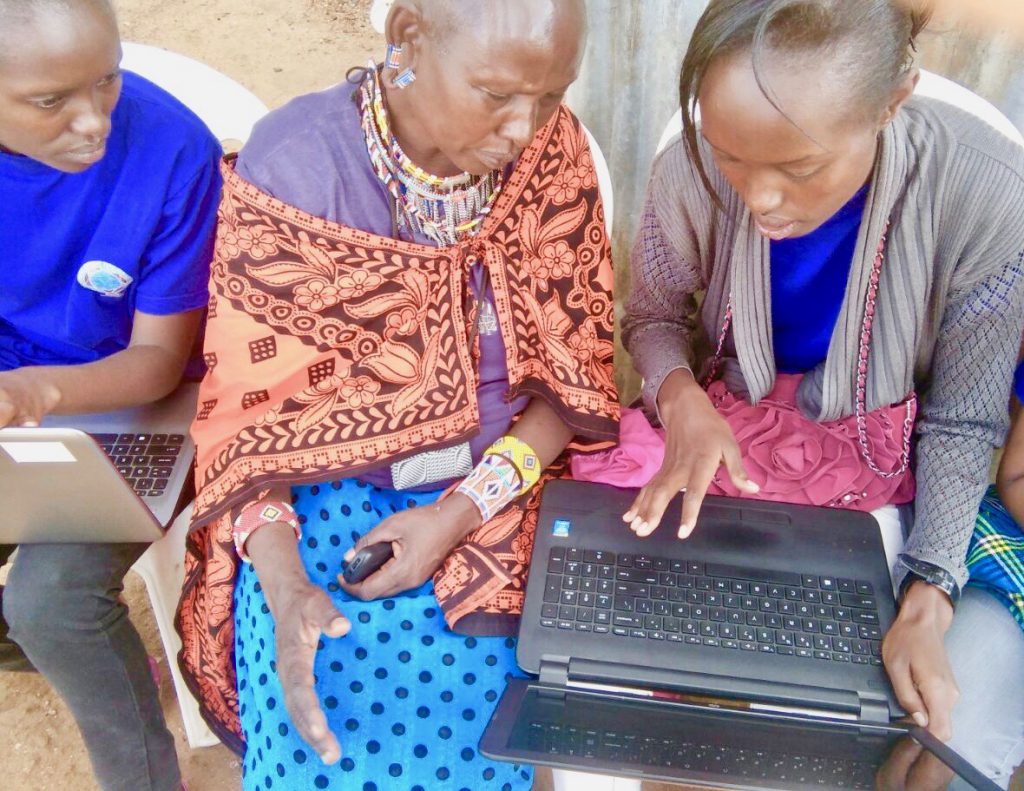Rachael Tengbom, Founder of Voices of Hope, speaks with W4’s editorial team about her visionary work to provide Maasai girls and women with life-changing educational opportunities.
Please tell us about your experience working with Voices of Hope.
|
Rachael Tengbom (in foreground) |
Voices of Hope (VoH) helps students to go to school and pays their tuition fees, but running an IT training program on a daily basis was new for me. My confidence was boosted by Stanley, the director of field operations, because I’ve been working with him at VoH for a long time and he always does a great job. He is strongly committed to the community and to empowering women. And I was inspired by our IT teacher, who is so advanced and so patient. He teaches even on weekends and really cares about these girls. Moreover, he is a well-known computer specialist in the region, so he is well positioned to help the girls to obtain internships and jobs after their training.
In the beginning, I was concerned because so few women even knew what IT was. But now it’s something that every girl wants to do! Women really want to learn more about modern technology. By the time we launched our second session, we already had over 50 people wanting to participate, though there were only 10 spots.
I love this program because it is really about more than just acquiring knowledge. I’m sure that it will open doors for many girls and women. And many of the program graduates are volunteering within their communities, which is encouraging and empowering for both them and their students.
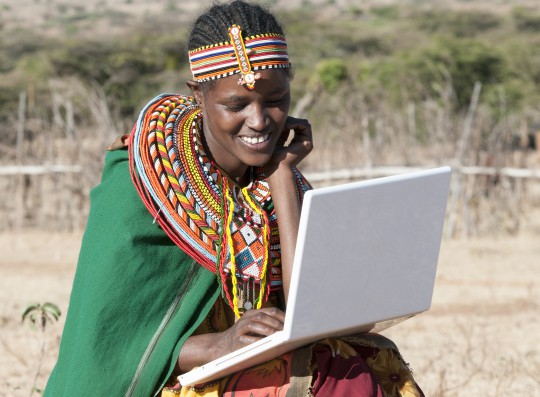
What are some of the challenges facing young Kenyan women, including Maasai women?
Oh, gosh… Where do I start? {Laughs.} As a Maasai woman, you are taught from birth that you are property to be sold. Throughout your girlhood, this is reinforced as you are confined to domestic work, going to fetch water or firewood, with no hope for your own future, just waiting to go through FGM and then be married off. Helping girls and women to escape this mindset is in itself is a big challenge. There’s also the fact that only very few girls are lucky enough to attend primary school. And for those who do go to school, they don’t know when they’ll be taken out of school and circumcised, which is done before fifth grade, between the ages of 10 and 14. In Kenya, 95% to 97% of girls who go through female genital mutilation are Maasai. Many organizations have worked hard to stop FGM, but it’s tough because the Maasai are very stubborn and resist change. We Maasais love our culture and many of us believe that girls should go through FGM to become women. It’s very difficult for a Maasai girl to avoid this rite of passage.
However, if you educate a woman and she becomes a teacher – I was a teacher – within the Maasai community, then your students and their families see educated people thriving on, and bringing into the community, the benefits of education. They see that you don’t depend on a man; you are independent. We have several nurses who went off to study, and they decided to come back to the community and work. They are great role models: this is the change we want the girls to see. The girls and their families can see that there is hope and they begin to believe in the benefits of educating a Maasai girl or educating girls in general.
I do think it’s important when you do this work to accept that not everybody will embrace you or welcome you. If you haven’t been through female genital mutilation, people won’t like to be associated with you. Accepting this is a challenge, because you feel like an outsider, like an outcast inside your own community. But you can move past that, and others will eventually recognize the benefits of the choices you have made.
What kinds of solutions can help Kenyan women overcome these challenges? Do they receive psychological support?
What these girls and women really need is unity. You don’t want to feel alone. We need to support each other.
For example, we sponsored a girl called Magdalene when she went to beautician’s school. One day, after graduating, she was cutting the hair of a male teacher and he asked her, “Where did you get your education?” When she explained, the teacher told her, “In the school where I teach, none of the girls have graduated eighth grade, because they have been pulled out of school by their families.” Immediately, Magdalene went and spoke with other Voices of Hope girls and four of them teamed up to start a mentorship program to keep girls in school. As a result, more girls have graduated from eighth grade.
Obviously, this is not something that one woman could do alone. First, there is the issue of danger. Magdalene was afraid of approaching the community by herself. But when she and the other women went together, they all felt confident and were able to make the difference. The Maasai women who are fighting for these girls’ rights and want to stop FGM have to stick together and walk together. That is the most important thing.
In addition, alongside the strong women in my area, there are men working against FGM, too! We have to include men! We have to raise boys to know that FGM is not healthy. Our boys should understand that it is fine and good to marry a woman who has not gone through FGM. This cultural shift is hard work, but it is doable. But we need to work together.
What are some future goals you have for the participants after the end of their training?
My hope and expectation is for these girls to gain education, get good jobs, become independent and go back into their communities to empower others. Whether or not they’re married, no matter what their work is, I want them to go back home and make a difference. I really believe in giving back. Once we women are empowered, we can help girls to gain their voices and make a difference.
I hope to encourage others by being a good example. I went to America and I could have simply stayed there. I found my husband there, I had my children there, but I have always come back to my village to try to make a difference. And I believe that the IT program students will do the same – not just gain knowledge and run away, but instead come back to empower others.
What motivated you to create Voices of Hope?
I’m part of the Maasai tribe. And during my life so far, the Maasai culture has not changed much. My mother was married off to a 40 year-old man when she was thirteen years old. She has told me how much she went through: you are married off to this old stranger, and you are just a child. (Of course, my father was educated and my mother wasn’t.) My father became an alcoholic, so my mother raised us herself. She created small businesses so that she could feed us. And we were lucky that a woman from Britain came to Kajiado and opened a boarding school for girls. My mom took my sisters and me there to study and that’s how we escaped, why we didn’t undergo genital mutilation. For some reason, my mom believed in women’s education and independence: she knew that we wouldn’t be able to have a better life without education.
I grew up and became a teacher. I taught in very rural areas, in a school where the kids were doing so well in second and third grade, but then, after third grade, there were no girls at school! They were gone. I was shocked, but there was nothing I could do because nobody was intervening.
My mom passed away when she was 40, so I came back home to raise my younger sister. I protected her from FGM and early marriage and I took her to America. At that moment, I realized that the biggest problem was not concerning younger girls. It’s the older girls who are more vulnerable, because all organizations are working to help younger girls. Everybody sympathizes with the plight of an 8-year-old at risk of being married off. But, it struck me: “Nobody is helping them after high school.” Many organizations don’t understand. They think that because a girl is 18, she has escaped. That is not true.
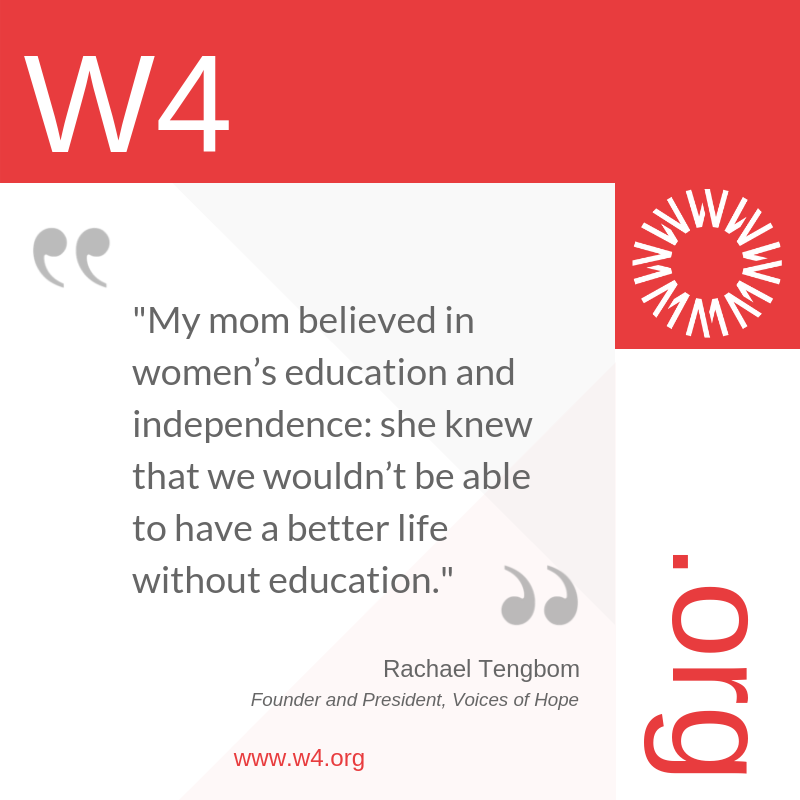
What have been some of your most remarkable moments since you began working with Voices of Hope?
What always surprises me is the number of girls who apply for our program. There are just so many. And I’m passionate about the fact that, even after college, we help the girls until they get a job and are independent. We don’t just let them go.
There was a dramatic moment for me, that made me committed to following through. We had our first group of girls, who were going through leadership training. After a few days, a young woman came and told me, “I’m sick, I have TB.” TB is, as you know, very contagious, and my first worry was that we were all staying in the same place and eating together. I was teaching the leadership training, occupied with the whole group of 14 girls. So, I told the sick girl to go to the hospital and get medical attention immediately. We never saw her again. I know now that her brother came and kidnapped her from the hospital. I have never recovered from this incident, because I’ve always felt I should have taken her to the doctor myself. Whenever someone asks me to share a moment that has left an impression me, that’s the one. I feel I opened the door for this to happen, and I don’t know where she is.
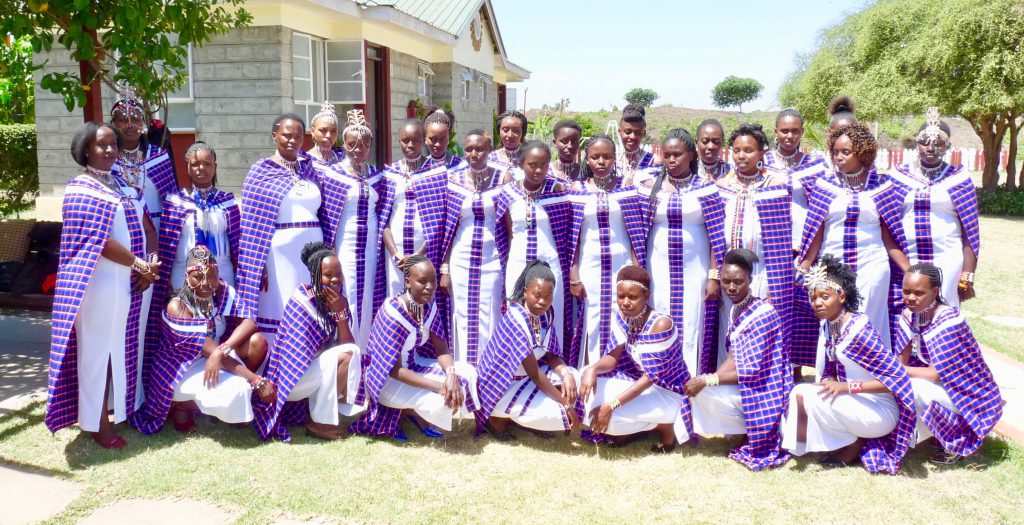
What about good moments?
I have wonderful moments! A very bright girl once came to me with a big tuition balance to pay for high school. If your fees are not paid, the teachers don’t give you your diploma. And if they don’t give you a copy of your diploma, you are not going to go to college or look for a job, even if your grades are wonderful, as this girl’s were. I told this girl that I couldn’t afford to pay her balance in high school, but if she found somebody to pay for that, then I would help her to go to college.
I was afraid that she was going to go back to the village, be married off, and I’d never see her again. But, instead, she went back and persuaded the head teacher to give her a copy of her diploma. Then she went look for a college. By the time she came back to me, she had an admission letter from the college. This girl was not going back to the village! She said, “I’m not going back to be married off after doing so well in high school.” She was so resilient. She showed me how strong those girls can be. I was so surprised. She ended up doing a Master’s degree in Communications, became a radio presenter and inspired so many girls, giving them a voice.
Then there is another inspiring woman, Faith. She became a nurse and started going to very remote rural areas on a motorcycle with her cooler, administering vaccine shots to babies. Many women trust her, because she’s a Maasai and can speak the language and knows the culture. Women confided in her that they want to control when they do and don’t get pregnant. As one woman said: “I don’t want to have babies anymore. My husband has four wives. I have seven kids.” So, Faith gives them family planning shots discreetly. She has become someone who is really helping women within the community.
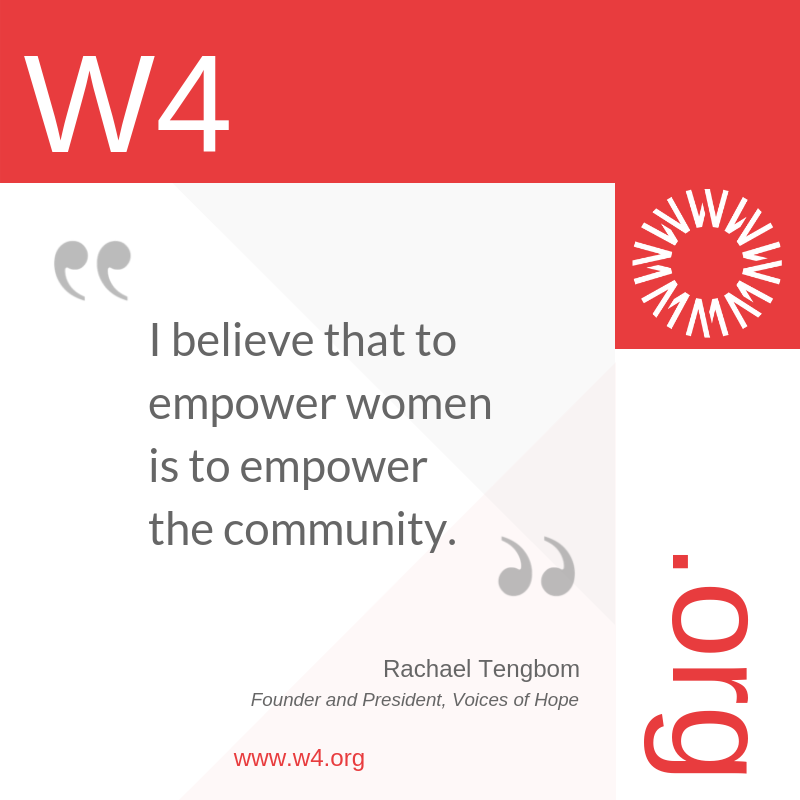
Is there anything else you would like to convey to people to motivate them to donate to Voices of Hope?
I believe that to empower women is to empower the community. If it weren’t for my mother’s determination, I wouldn’t be here. Girls and women change the world. If I were educating boys, I’m sure most of them would get married and focus on themselves and their families. But there’s something about women: girls and women don’t just keep their knowledge to themselves, they try to spread it.
Find out about the joint programs of W4 and Voices of Hope in Kajiado, Kenya, and how you can get involved: IT Training to facilitate young Maasai women’s access to the job market









